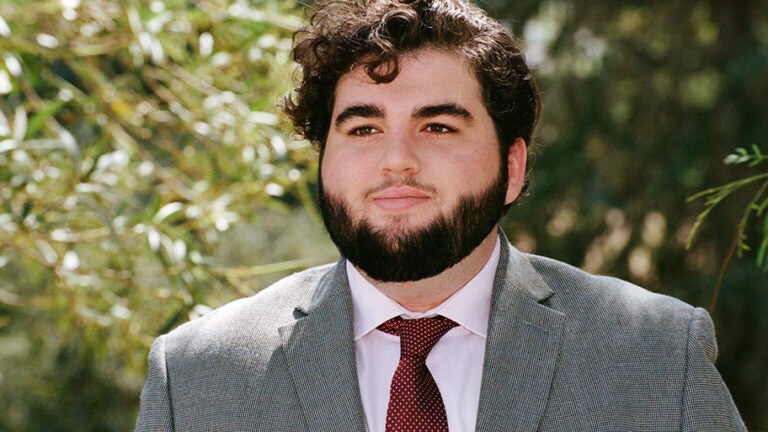
USC Dornsife student enjoys up-close view of UN Climate Change Conference
Murad Jah has loved the ocean for as long as he can remember.
A scuba enthusiast and ocean photographer, Jah felt a calling to protect the seas — which surprises a lot of people, considering that he grew up in London.
But that calling is what brought him more than 5,400 miles to USC, pushed him to pursue a master’s in environmental studies at the USC Dornsife College of Letters, Arts and Sciences and has now given him a virtual front-row seat at the 2021 United Nations Climate Change Conference.
“I knew that if I wanted to best tackle my interests and my desire to help the world as much as possible, I couldn’t just stay in one place,” Jah said.
“Knowing and understanding the world, to the best of your ability from different cultures, is just going to help with understanding the different issues we face with the climate.”
Jah remembers the first time he saw the human impact on the environment. He was scuba diving.
“I was really sad to jump into water that was filled with plastic and rubbish,” Jah said. “This was that time when we were figuring out the science behind global warming, and it was all more negative than positive.
“From quite a young age I knew I wanted to do as much as I could to maybe turn that negative into a bit of a positive outlook.”
For the past year, Jah has been a research assistant for the U.N. conference — also known as the Conference of the Parties, or COP26 — under Shannon Gibson, associate professor of international relations and environmental studies at USC Dornsife.
Gibson and her team of students traveled to the USC Wrigley Institute for Environmental Studies on Santa Catalina Island to attend COP26 virtually, as observers. The group has been investigating how protests and grassroots activities impact language and communication about climate change, particularly at formal conferences like COP26. Students are also researching how the COVID-19 pandemic has created both challenges and opportunities for climate justice organizations and activists.
As he sat in front of his computer all week at his temporary home on Catalina Island, he couldn’t help but feel a mix of optimism and disappointment. Despite seeing extensive coverage of demonstrations and protests surrounding the conference, he’s disappointed that the younger generation of environmentalists still don’t seem to have a seat at the table within the conference.
“A lot of negotiations and promises have been made, but there’s not enough substantial action,” he said.
However, in those protests and demonstrations, Jah sees others like him — a generation of environmentalists that are passionate and ready to change the world.
“With this COP getting so much media attention — whether good or bad — it’s bringing attention to the actual COP, and I think that’s very important,” Jah said. “It does feel fantastic to be able to work towards a goal and know that you’re making a difference.”